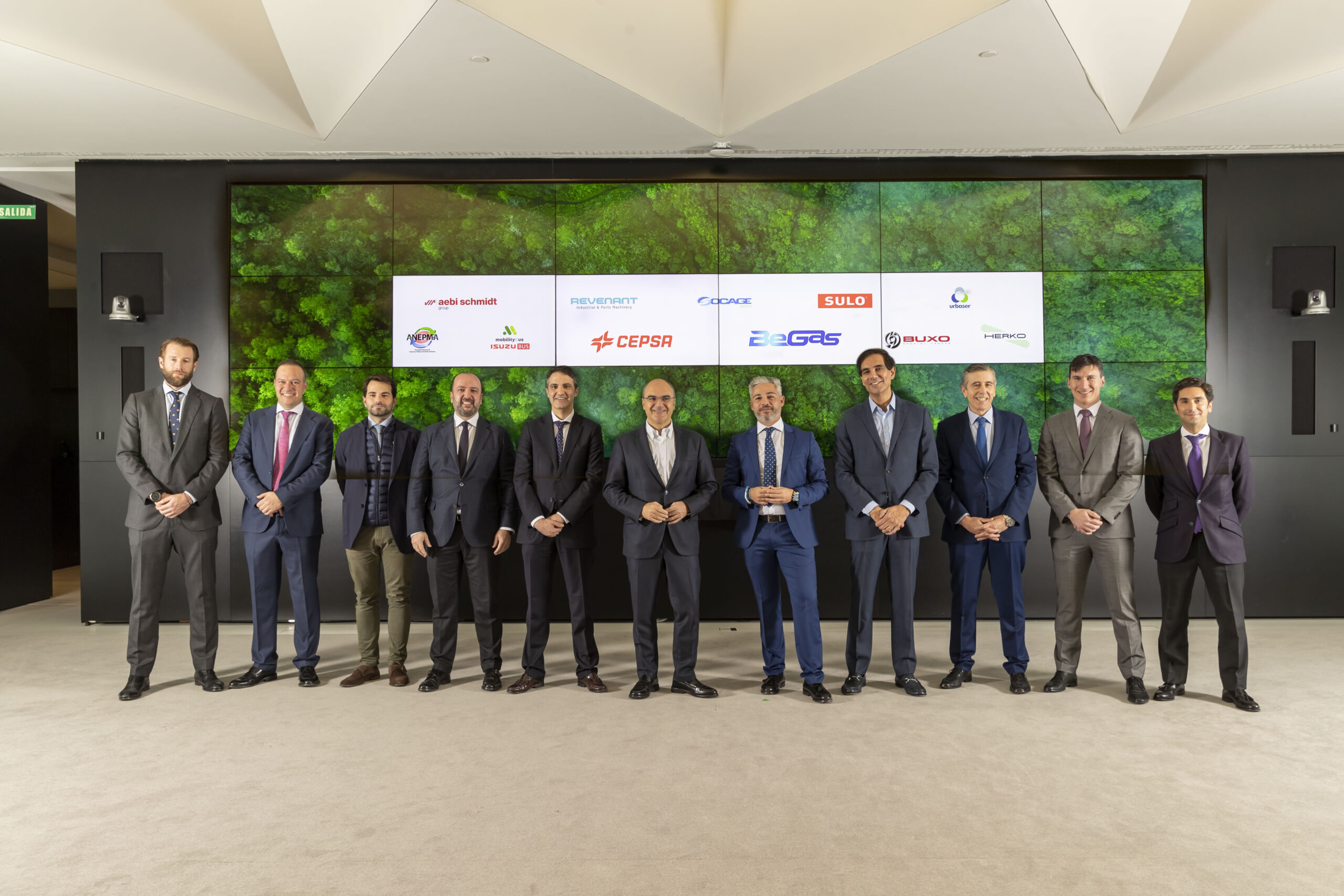Media Room
Spanish strategic partnership promotes bioLPG use in professional urban fleets

Cepsa, clean energy and sustainable mobility company, and BeGas, manufacturer of LPG engines, have signed a collaboration agreement to support the decarbonisation of professional urban transport, such as buses, delivery vans and trucks, waste collection trucks, and other municipal service vehicles, with the widespread adoption of bioLPG and other renewably-sourced fuels.
This alliance aims to integrate the entire value chain of this sector (engine and vehicle manufacturers, fuel producers and consumers) with a common goal: fighting climate change by reducing the sector’s carbon footprint and cutting pollution in cities. Currently, heavy urban vehicles account for 10% of the fuel consumption of the total professional transport fleet.
So far, nine partners from the public and private sectors have already joined this partnership: vehicle and machine manufacturers Mobility Bus, Herko, Buxo Trucks, Socage, Aebi Schmidt Ibérica and Revenant; the companies Urbaser and Sulo, which have vehicles of this type in their fleets; and ANEPMA (National Association of Public Environmental Companies).
“At Cepsa, we want to help our customers advance their own decarbonisation challenges. This is why partnerships such as the one we are presenting today, which facilitate the energy transition of professional vehicles driving in our cities, are at the heart of our strategy. It is extremely satisfying to be able to achieve a cross-disciplinary partnership of this size, which we hope will continue to grow and strengthen with a clear objective shared by all: moving forward together in the sustainability of transportation,” said Carlos Barrasa, Director of Commercial & Clean Energies at Cepsa.
“The agreement with Cepsa is a strategic collaboration since internal combustion engines powered by BioAutogas are the strategic solution to achieve the 2050 objectives,” commented Pedro Silva, CEO of BeGas.
Achieving this partnership confirms the commitment of both companies to reducing emissions from heavy urban vehicles. Cepsa currently has an annual production capacity of 7,000 tonnes of biopropane at its industrial facilities and, as part of its Positive Motion strategy, it expects to produce more than 100,000 tonnes of this sustainable fuel annually by 2030. The company aims to lead the production of advanced biofuels in Spain and Portugal with an annual output of 2.5 million tonnes by the end of this decade.
Source: Cepsa
18 January 2023
